Get The Most Out Of Your Solar Production
Discover the pinnacle of energy efficiency with Sun Pro Energy’s Domestic Hot Water solutions. Our systems seamlessly integrate solar technology into your water heating setup, reducing reliance on conventional energy sources. Experience the luxury of consistent hot water while minimizing your environmental impact and lowering utility costs. Sun Pro Energy is your trusted partner for transforming how you access hot water, ensuring a greener, more cost-effective, and efficient solution for your home.
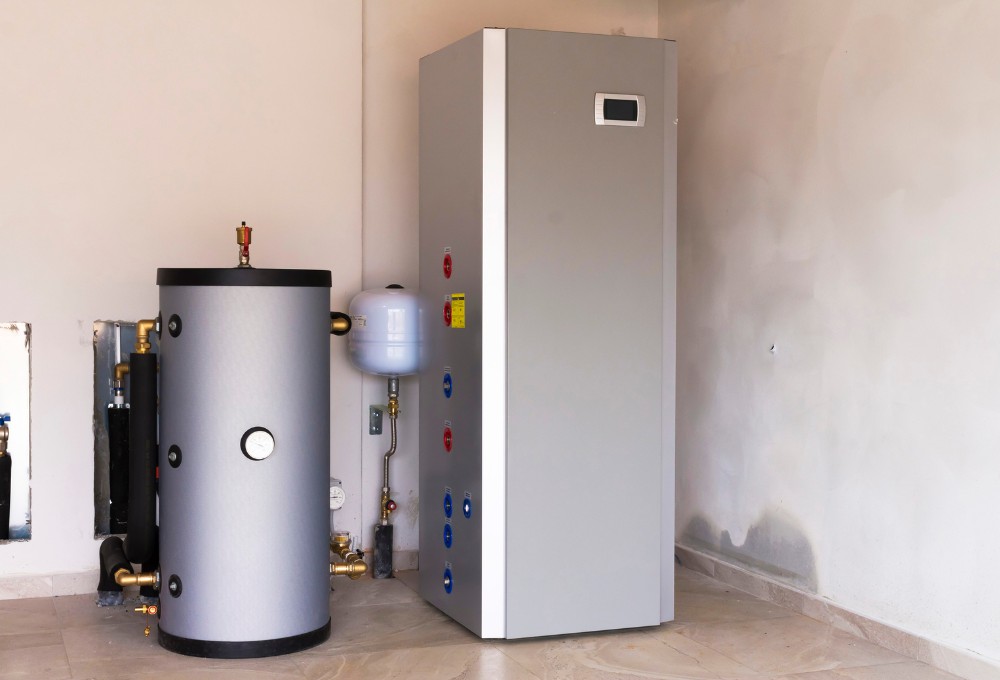
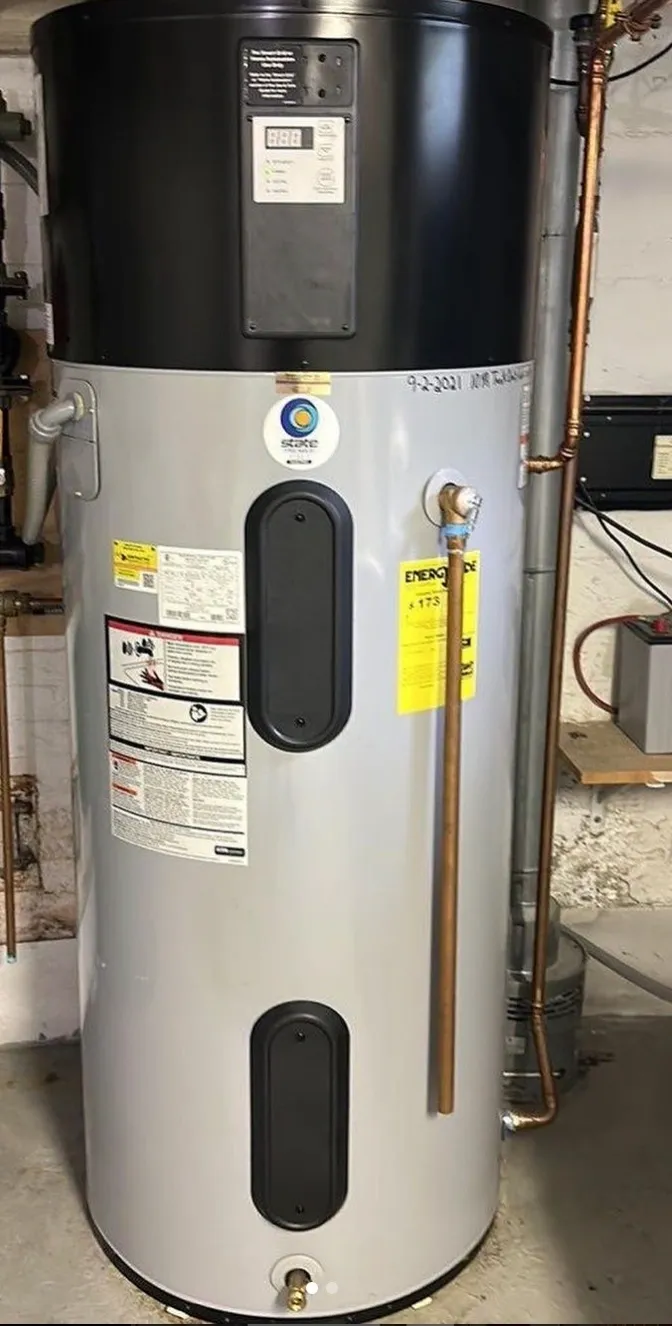
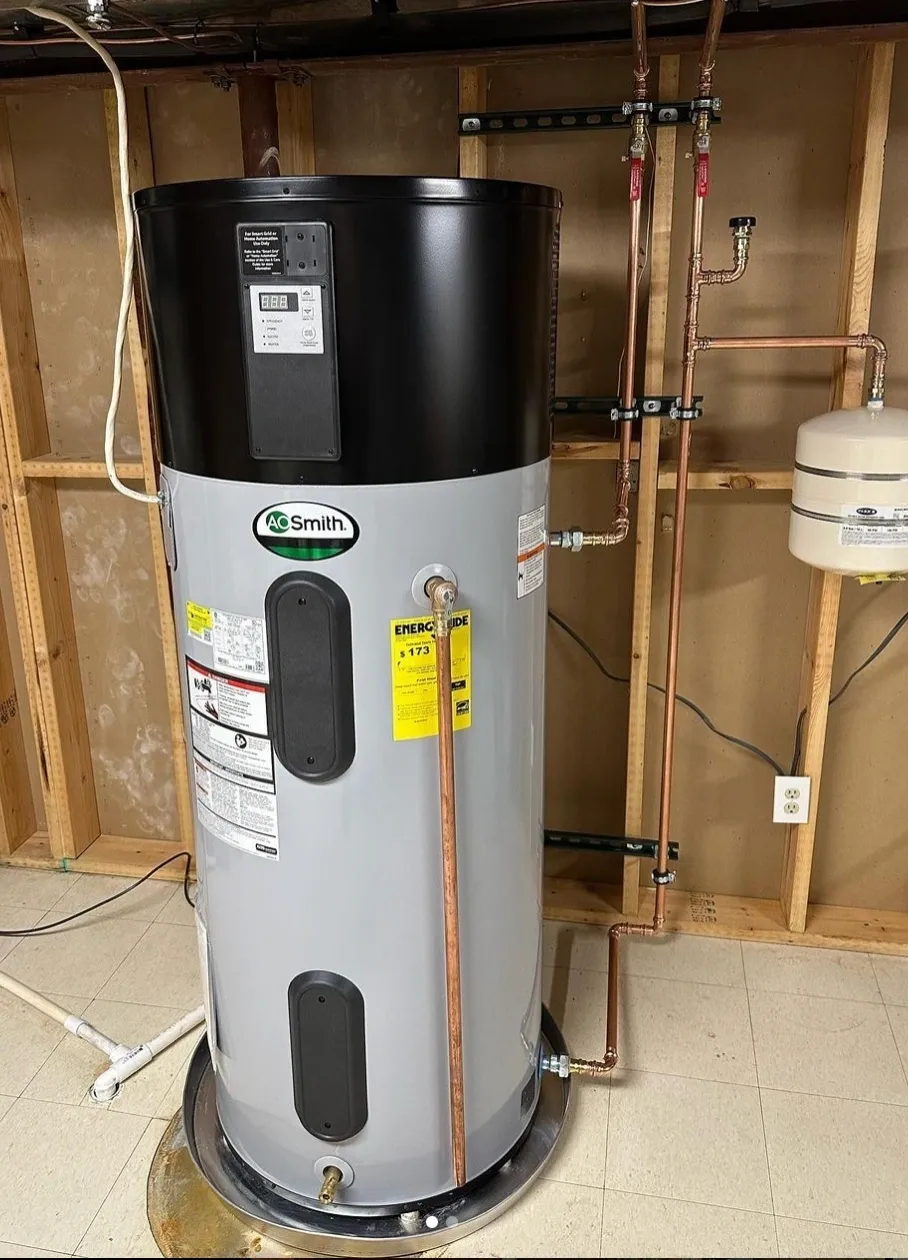
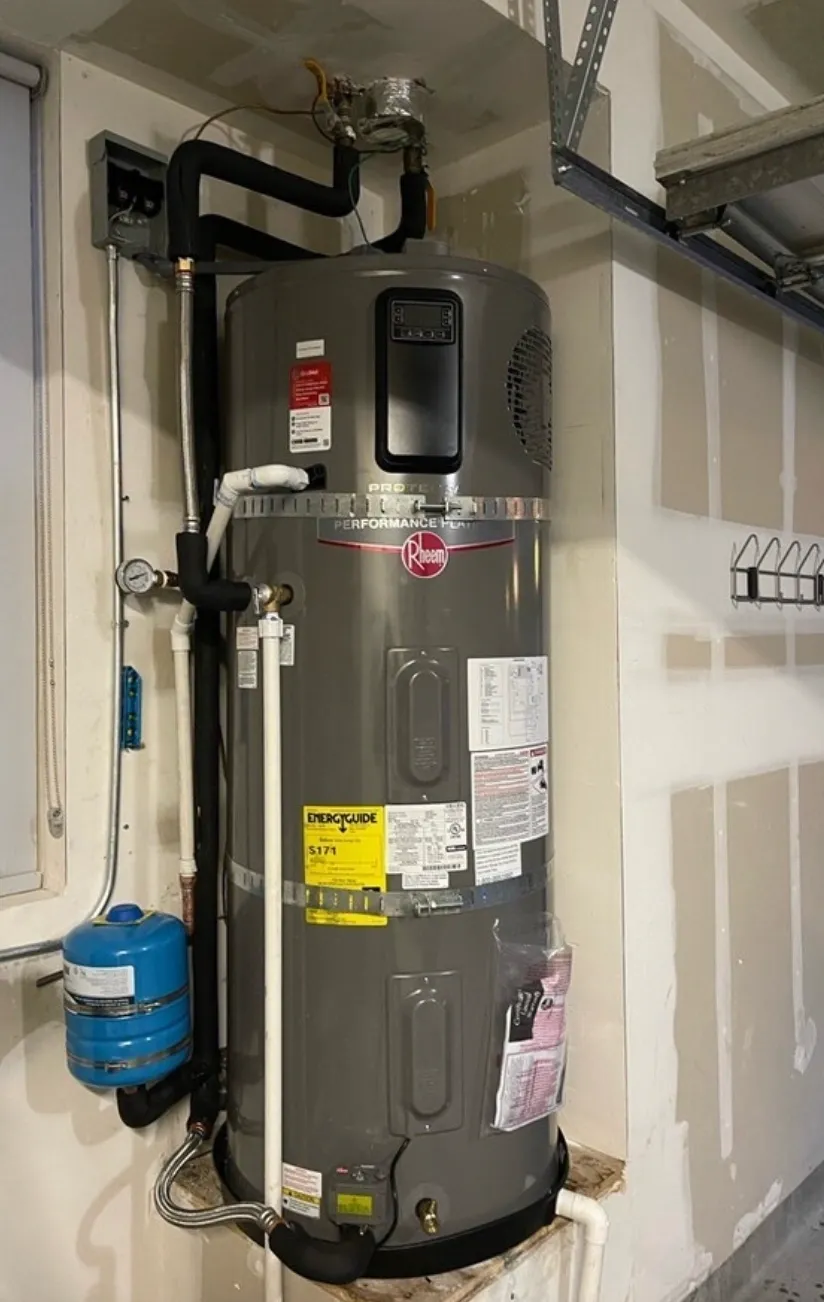
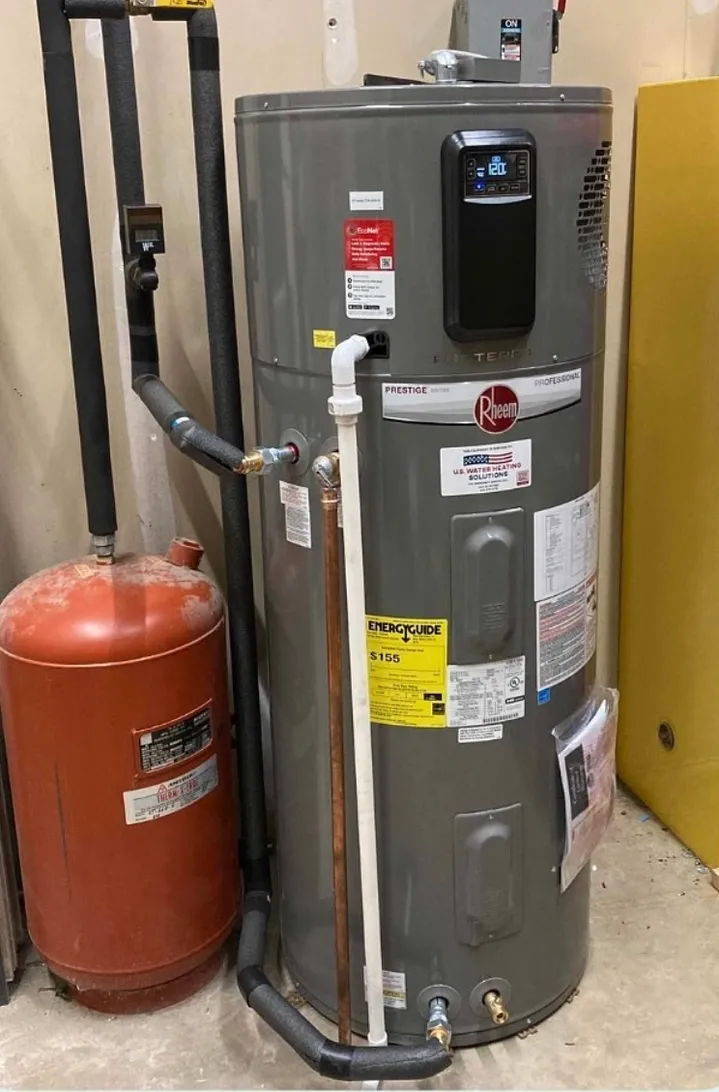
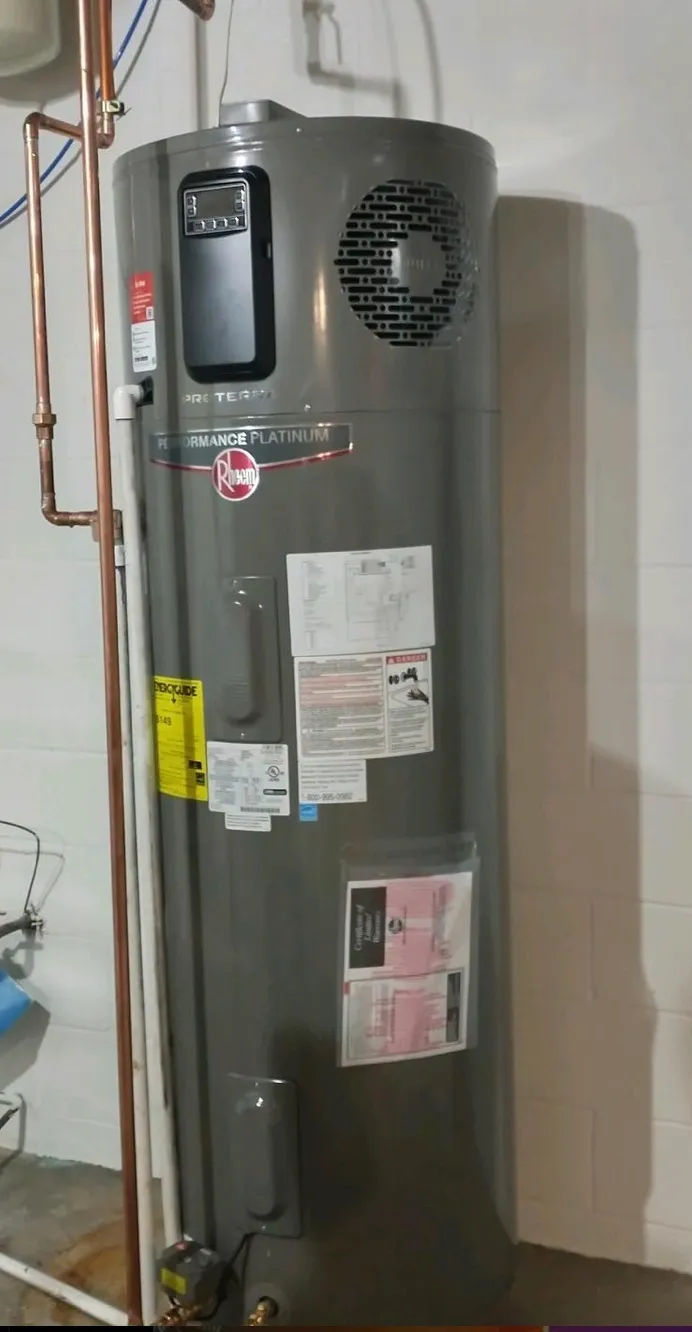
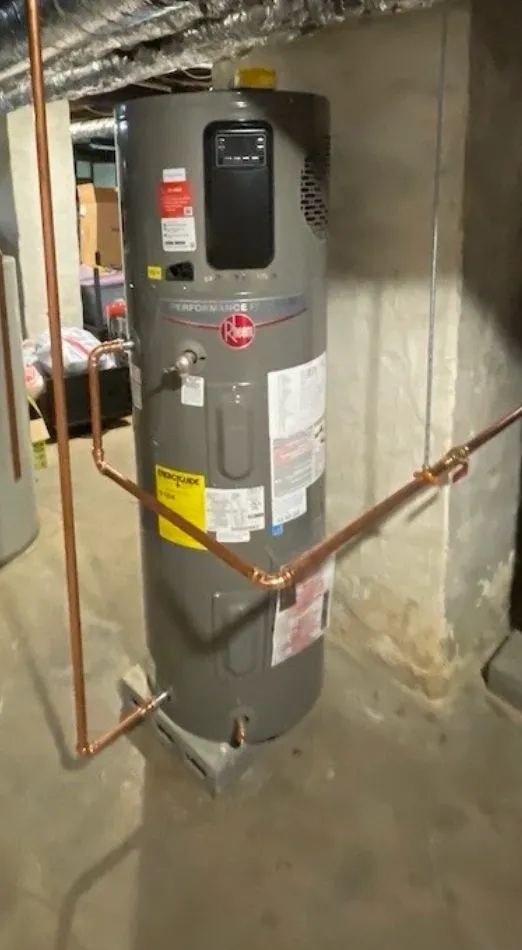
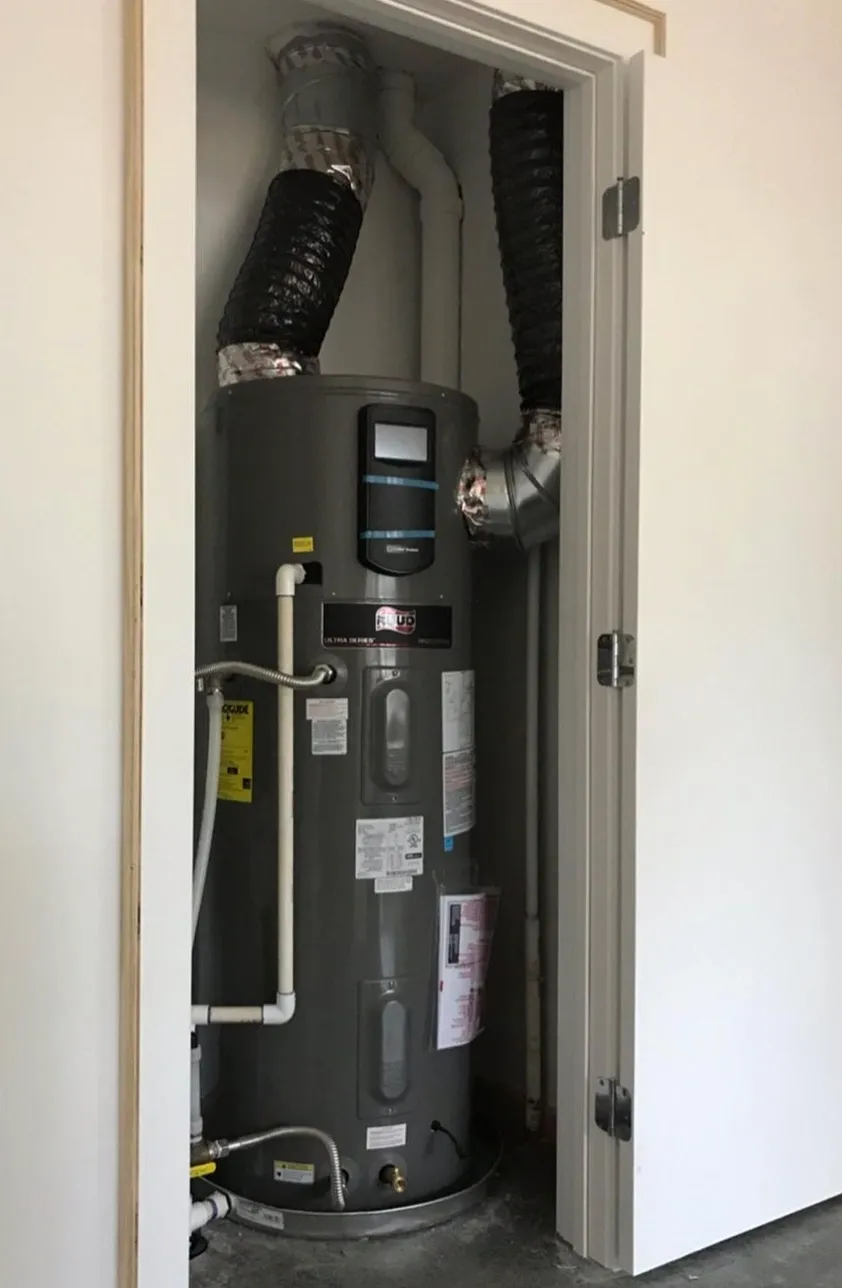
Heat Pump Water Heaters
An Energy-Efficient Solution for Cost-Effective Hot Water
Hot water is an essential part of our daily lives, whether it’s for showering, cooking, or cleaning. However, traditional water heaters can consume a significant amount of energy, leading to high electricity bills. In recent years, heat pump water heaters have gained popularity as an energy-efficient alternative that not only provides hot water but also helps offset the cost through various means. In this blog post, we will explore heat pump water heaters and discuss how they can help you save money on hot water.
Understanding Heat Pump Water Heaters:
Heat pump water heaters (HPWHs) work on the principle of transferring heat from the surrounding air to heat the water. Unlike conventional electric or gas water heaters that generate heat directly, HPWHs use a compressor and refrigerant to extract heat from the air and transfer it to the water. This process allows them to be up to three times more energy-efficient than traditional models.
Energy Efficiency and Cost Savings:
By using the ambient air as a heat source, heat pump water heaters consume less energy, resulting in reduced electricity bills. According to the U.S. Department of Energy, HPWHs can save an average household $330 annually compared to standard electric water heaters. The energy efficiency of HPWHs also contributes to reducing greenhouse gas emissions, making them an environmentally friendly choice.
Factors Affecting Efficiency:
Climate:
HPWHs work best in moderate to warm climates, where the surrounding air temperature remains above 40°F (4°C). In colder climates, the unit may struggle to extract enough heat, leading to reduced efficiency. However, advancements in technology have made HPWHs more suitable for colder regions as well.
Space Requirements:
Heat pump water heaters require adequate space for installation. They need a well-ventilated area, typically at least 1,000 cubic feet, to operate efficiently. The location should have enough air circulation and be away from obstructions or areas with extreme temperatures.
Offsetting the Cost of Hot Water:
Apart from energy savings, heat pump water heaters offer additional ways to offset the cost of hot water:
Federal and State Incentives:
Many governments and utility companies provide incentives to encourage the adoption of energy-efficient technologies. These incentives may include rebates, tax credits, or low-interest financing options for purchasing and installing heat pump water heaters. Check with your local authorities and utility providers to explore the available incentives.
Long-Term Cost Benefits:
Although heat pump water heaters have a higher upfront cost compared to traditional models, their long-term benefits outweigh the initial investment. The energy savings over the lifespan of the unit can significantly offset the higher purchase price, making it a cost-effective choice in the long run.
Time-of-Use Pricing:
Some utility companies offer time-of-use pricing, where electricity rates vary based on the time of day. Heat pump water heaters can take advantage of this pricing structure by heating water during off-peak hours when electricity rates are lower. By scheduling the operation of your HPWH accordingly, you can further reduce your hot water expenses.
Conclusion
Heat pump water heaters provide an energy-efficient and cost-effective solution for hot water needs. By harnessing the heat from the surrounding air, they consume less energy compared to traditional water heaters, resulting in significant savings on electricity bills. In addition, various incentives and cost offsetting methods, such as federal and state incentives and time-of-use pricing, make HPWHs an attractive choice for households looking to reduce their hot water costs. Consider investing in a heat pump water heater to enjoy long-term savings while contributing to a greener future.
